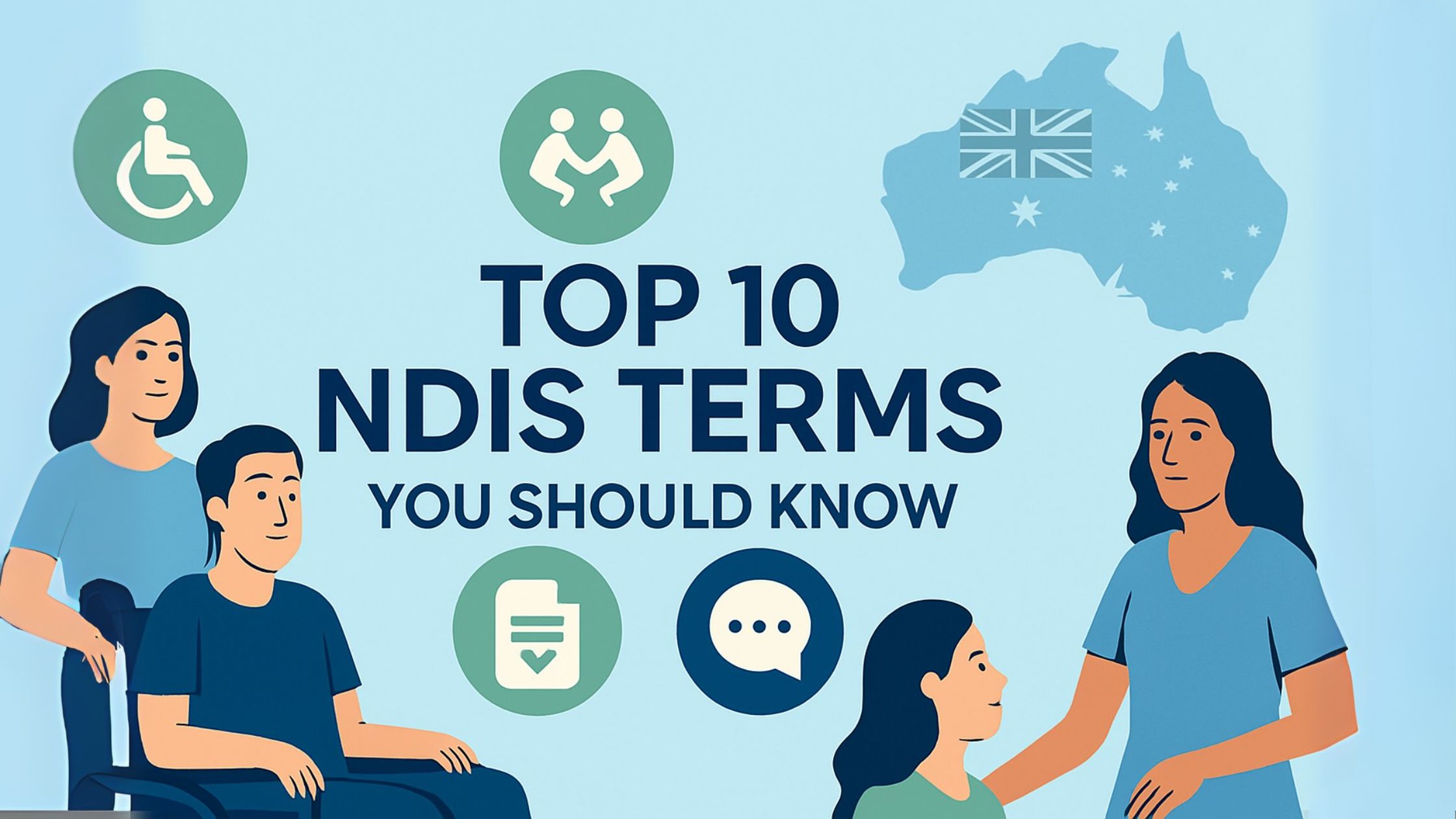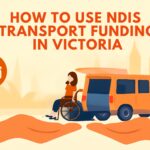Navigating the NDIS can be confusing, especially with all the unfamiliar terms and acronyms. Whether you’re a participant, a family member, or a support coordinator, understanding core NDIS language is essential to making the most of your plan. In this guide, we break down the top 10 NDIS terms every Australian should know—explained simply and …
Navigating the National Disability Insurance Scheme (NDIS) can feel like learning a new language. Whether you’re a participant, carer, or support coordinator, understanding core NDIS terms makes the process less overwhelming and ensures you get the most from your plan. Here’s your plain-English guide to the ten most essential NDIS terms—explained, demystified, and tailored for Australians.
1. NDIS (National Disability Insurance Scheme)
The NDIS is Australia’s nationwide scheme offering funding and support to Australians living with a disability, their families, and carers. It aims to foster greater independence, participation, and choice in everyday life.
2. Participant
A participant is someone who has been granted access to the NDIS. Participants receive individual funding packages after their needs and goals are assessed. If you’re eligible, you become a participant and use the NDIS to access supports and services.
3. Plan
Your NDIS Plan is the official document outlining your goals, funding breakdown, supports, and services. This customised plan is reviewed annually to make sure your needs are being met.
4. Planner
An NDIS Planner is an official who works for the NDIS and meets with you (often during a ‘planning meeting’) to help build and review your NDIS Plan. They’ll discuss your needs, aspirations, and the support options available.
5. Local Area Coordinator (LAC)
LACs are community-based partners who help participants understand, access, and implement their NDIS Plan. They’re your local go-to resource for finding services, understanding your funding, and connecting to mainstream supports.
6. Support Coordinator
A Support Coordinator helps you put your NDIS Plan into action, especially if your needs are complex or you have several service providers. They work alongside LACs but often provide more tailored, hands-on coordination.
7. Service Provider
Service Providers are organisations or independent professionals delivering the supports listed in your NDIS Plan, such as occupational therapy, personal care, transport, or community activities.
8. Core Supports
This funding category provides help with everyday activities. Core Supports may include assistance with daily living, transport to activities, social participation, and consumables (like continence products).
9. Capacity Building Supports
Capacity Building funding is aimed at helping you build independence and develop skills. It covers things such as therapies, training, mentoring, and even employment support, allowing you to work towards your personal goals.
10. Plan Management
Plan Management refers to how your NDIS funds are handled. There are three main options:
NDIA-managed: The NDIS pays providers directly.
Plan-managed: A registered Plan Manager handles your finances, pays invoices, and tracks spending.
Self-managed: You (or your nominee) take direct control of all NDIS funds and payments.
Pro Tips for Navigating NDIS Language
Ask questions: Don’t hesitate to ask your LAC or Support Coordinator to explain any term that’s unclear.
Personalise your plan: Each NDIS Plan is unique, so make sure your funding and supports match your real-life goals.
Stay informed: NDIS terminology evolves. Keeping up helps you make the most of your support.
In Summary
Understanding these fundamental NDIS terms puts you in control, increases confidence, and empowers you to get the most from your NDIS experience. Whether you’re starting your journey or seeking more clarity, bookmark this page to keep these must-know NDIS terms at your fingertips.
If you need help or want to learn more, visit the official NDIS website.
Ready to take charge of your NDIS journey? Drop your questions in the comments, share this guide with your community, or connect with a support coordinator for tailored advice.






